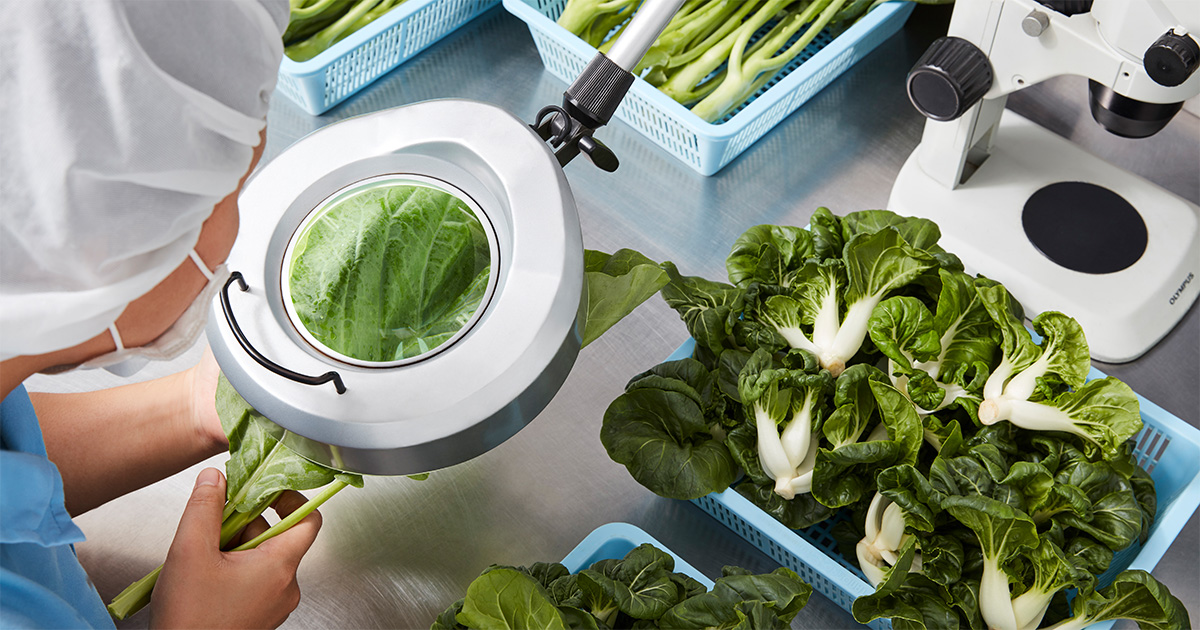The whole process in KC Fresh’s packing house has prioritized the Food quality and safety as the first, therefore, the food safety managing system has been conducted in every step, to ensure the consumers that all products are processed following the requirements of GHP (Good Hygiene Practice), HACCP (Hazard Analysis and Critical Control Point), BRCGS (Brand Reputation through Compliance Global Standard) and Organic Thailand.
The products are hazard analyzed, quality monitored, well selected with fresh and safe before supplying to consumers, both in domestic market and global market.
GHP (Good Hygiene Practice)
Good Hygiene Practice or GHP is the basis for a food hygiene system that supports food production to produce safe and suitable food products, from raw materials through transportation. The standard guidelines are established by Codex for food manufacturers around the world to properly manage to protect consumers from hazards of biological, physical, chemical and allergy contaminations. GHP has 9 principles;
- Introduction and Food Safety control management
- Primary Production
- Establishment Design and facilities
- Operations control
- Sanitation
- Personal Hygiene
- On job training
- Consumer awareness
- Transportation
HACCP (Hazard Analysis and Critical Control Point)
Hazard Analysis and Critical Control Point or HACCP is a management system to analyze and control the hazard and critical points of biological, physical, and chemical contamination throughout the food production. It is the international standard regulated by the committees of FAO/ WHO (Codex Alimentarius Commission) which many countries can implement the standard’s regulations to ensure the food safety for both producers and consumers.
The principles of HACCP consist of three hazardous protections:
- Biological hazard is the biological substances that cause a decease or toxic condition to the health.
- Chemical hazard from chemical applications either to protect the plants in the farm , or use in the food producing process, whether it be Preservative or Cleansing chemicals.
- Physical hazard is any kind of substance, such as pieces of glass, hard plastic or metal.
BRCGS (Brand Reputation through Compliance Global Standard)
The British Retail Consortium or in short BRC which was formed by the UK retailers’ association and consortium with supports from many supermarkets has started re-branding to BRGCS in 2019. The new BRGCGS stands for Brand Reputation through compliance with global standards. The new standard is to raise safety standards to the next level where the products are conducted under management and control systems to ensure that they are safe from any contaminations of physical, biological, chemical, food allergens and radioactive substances, with or without intentional contamination. The products will be safe to consume and to meet the satisfaction of consumers. This also allows manufacturers to take immediate corrective action to avoid any risk of product contamination.
Organic Thailand
Organic Thailand is the official label for products produced in Thailand that meet the Organic Thailand Agriculture Standard TAS 9001-2552. approved by the Department of Agriculture under the Ministry of Agriculture and Cooperatives of Thailand.
Since 2019, KC Fresh's packing house has been certified with Organic Thailand.
